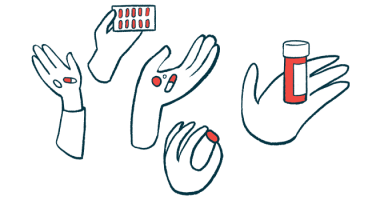WVE-210201 Receives FDA Orphan Drug, Rare Pediatric Disease Designations for DMD
by |

Wave Life Sciences’ treatment candidate WVE-210201 has been granted both orphan drug designation and rare pediatric disease designation for the treatment of Duchenne muscular dystrophy (DMD) from the U.S. Food and Drug Administration.
Orphan drug designation provides Wave with seven years of market exclusivity in the U.S., tax credits for costs associated with clinical trials, release from paying the prescription drug user fees, and assistance from the FDA in designing clinical trials.
Rare pediatric disease designation, which is only granted to therapies that target serious or life-threatening rare diseases in patients 18 or younger, provides regulatory incentives and makes Wave eligible for a priority review voucher if WVE-210201 is approved.
A priority review voucher, which can be used for a subsequent therapy or sold to another company, entitles the holder to a faster six-month FDA drug review.
“We are very pleased to receive these two important designations from the FDA and believe they further reinforce the potential of WVE-210201 to help boys suffering from DMD,” Michael Panzara, MD, lead of the neurology franchise at Wave, said in a press release.
This follows the European Commission’s decision to grant WVE-210201 orphan drug designation in July.
A Phase 1 clinical trial (NCT03508947) is currently assessing the safety, tolerability, and concentrations of single ascending doses of WVE-210201 in eligible DMD patients. The randomized, placebo-controlled trial is recruiting up to 40 participants between the ages of 5 and 18 at sites in the U.S., U.K., and France.
After completing the trial, participants have the option of continuing treatment with WVE-210201 in an ongoing, open-label extension study.
Genes, which often provide instructions to make proteins, are made up of many smaller components called exons. When even one exon is irregular (for example, due to mutation), it can lead to either a deficiency in the protein for which it provides instructions or a nonfunctional protein.
DMD patients have a mutation in the DMD gene, which provides instructions for making a protein called dystrophin. WVE-210201 was developed for the 13 percent of DMD patients who have a specific type of mutation in the DMD gene that makes them amenable to exon 51 skipping treatment.
The exon-skipping method allows the cellular machinery to “skip over” a particular exon — such as exon 51 — which restores the genetic sequence to some extent. While this won’t lead to the production of a fully functional dystrophin protein, it can result in the production of a shorter, but still functional protein.
Preclinical experiments have shown that the use of WVE-210201 was associated with a 52% increase in the levels of dystrophin protein compared with normal skeletal muscle tissue.
“These designations from U.S. regulators represent the significant progress being made by Wave Life Sciences and our community is grateful to Wave for their ongoing commitment to the Duchenne muscular dystrophy community,” said Pat Furlong, founding president and CEO of Parent Project Muscular Dystrophy. “We look forward to their exon 51 skipping program advancing and Wave’s other initiatives in DMD.”







